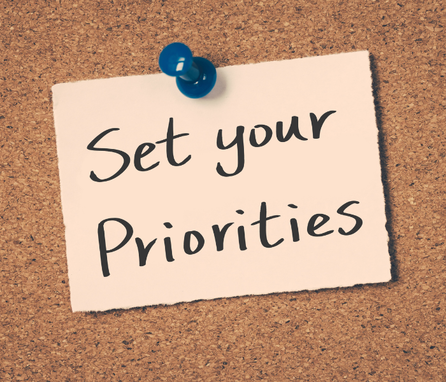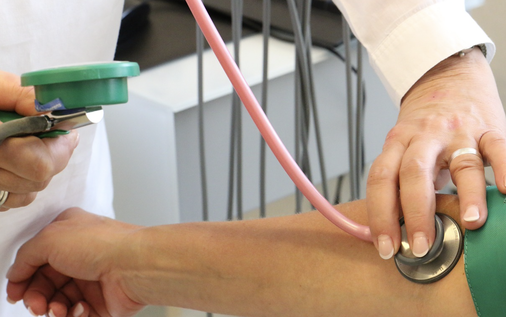|
Several years ago career advisor Laura Yamin, MA, noticed that she was experiencing way too many burnouts. She realized that she needed to stop focusing on urgent requests, which masqueraded as important things. Instead, she refocused on exploring the type of life she’d like to live.
This helped her figure out what’s truly important to her. From there she was able to distinguish her priorities — the tasks, experiences and actions that fulfill her personal values. Many of us feel like we’re being pulled by pressing things, while our real priorities get neglected.
0 Comments
Proper breathing during weight lifting is vital, not only for your performance, but also for your health. Breathing ensures that the blood circulating to your working muscles is oxygenated and that waste products are removed. Holding your breath during weight lifting can lead to dangerous increases in blood pressure, which can lead to injury.
HOW TO GET YOUR LIFE IN ORDER WHEN THINGS FEEL OUT OF CONTROL by Allison Sue (www.compassmylife.com)4/21/2023 I want to open this post with a moment of real honesty…
There have been several times in my adulthood that I’ve felt like I’ve lost control of my life. My sleeping schedule was erratic, my house was a mess, and my “health routine” left me feeling blahhhhhh. It was really beyond the “I’m in college and still trying to figure out my life” stage of things. Yeah, this was full blown, “I’m a married woman who can’t seem to get a handle on… well, anything and I don’t know why.” I think that was the worst part. The first time it happened, I didn’t know why or where to start or how to get my life in order. Oral hygiene is the practice of keeping your teeth free from decay and your other mouth structures free from infection. This includes regular brushing and flossing. Dr. Z also highly recommends dental exams and cleaning at least twice a year to ensure good oral hygiene.
Oral hygiene is vital to an individual’s overall health and well-being. Studies have shown that untreated oral diseases may increase the risk of adverse health conditions. Thus, maintaining good oral hygiene is important in improving your oral health and overall well-being. Weight loss is a journey that can sometimes be frustrating. One day you are trying a new workout and replaying motivational quotes in your head on repeat, the next day you find yourself feeling as if all of your efforts are all for naught when you step onto the scale and see the same number again. Hitting a weight-loss plateau can be seriously demoralizing.
TBH, your body does not really want you to lose weight—when you cut back on calories, it thinks you are starving. “Your body will then make you feel hungry because it thinks something is wrong and wants you to gain that weight back,” says Peter LePort, MD, a bariatric surgeon and the medical director of MemorialCare Surgical Weight Loss Center at Orange Coast Medical Center in Fountain Valley, California. Also, when you start losing weight (muscle or fat), your metabolic rate slows down, which means your body starts burning calories at a slower rate. Other common culprits behind a weight-loss plateau may be gut imbalances, hormonal imbalances, immune dysregulation, inflammation, nutritional deficiencies, or under-recovery, says Chicago-based dietitian Chelsea Stegman, RD, LD, CPT. Your bones are living tissues that are constantly breaking down and rebuilding. And diseases that change bone architecture, such as osteoporosis, spell trouble.
“Osteoporosis happens because the cells that break down bone are more active than those that are in charge of building bone, putting you at risk for fracture” explains orthopedic physical therapist Jennifer Danzo. “Osteoporosis is a major health concern. Half of all women and one-quarter of all men over age 50 will have a fracture caused by osteoporosis in their lifetime.” Fortunately, exercise done properly can help to rebuild bone and reduce the likelihood of fracture, says Danzo. Here are her recommendations if you have osteoporosis and haven’t had a bone fracture. If your heart is racing as you’re sitting reading this article, it’s possible your body is trying to tell you something. A high resting heart rate, or a heart rate of more than 100 beats per minute, means your heart is working extra hard to pump blood through your body. And, that extra effort could result in a wide range of negative effects on your overall health, including feelings of dizziness and fatigue – and most seriously – blood clots, heart failure and, in rare cases, sudden death.
Normal resting heart rate is anywhere between 60 and 100 beats per minute, and it’s simple to check how fast yours is beating. While idle, hold your pointer and middle finger between your bone and tendon on the thumb side on your wrist until you feel your pulse, and count the number of beats for a minute – that is your resting heart rate. Certain aspects of someone’s resting heart rate are directly connected to uncontrollable factors, such as age and genetics, however there are certain actions that be taken to help decrease heart rate and improve overall wellbeing for those whose resting heart rate is above normal. Here are six proven ways to lower your resting heart rate: |
The FDF LifestyleThis page includes blogs, healthy articles, inspiring pictures, exercise tutorials, music, etc. No content on this site, regardless of date, should ever be used as a substitute for direct medical advice from your doctor or other qualified clinician. Archives
April 2024
Visit this section daily to become more healthy and positive.Strengthen your mind by consistently learning new information.
New articles are uploaded throughout the week. |
Live |
Life |
To |
The |
Fullest |
Family Dreams Fitness LLC (www.familydreamsfitness.com) is not responsible or liable for any advice, course of treatment, diagnosis or any other information, services or products that you obtain through this site. You are encouraged to consult with your doctor with regard to this information contained on or through this website. After reading articles, watching videos or reading other content from this website, you are encouraged to review the information carefully with your professional healthcare provider.
You should understand that when participating in any exercise or exercise program, there is the possibility of physical injury. If you engage in any exercise or exercise program on this website, you agree that you do so at your own risk, are voluntarily participating in these activities, assume all risk of injury to yourself, and agree to release and discharge Family Dreams Fitness LLC from any and all claims or causes of action, known or unknown, arising out of Family Dreams Fitness LLC.








